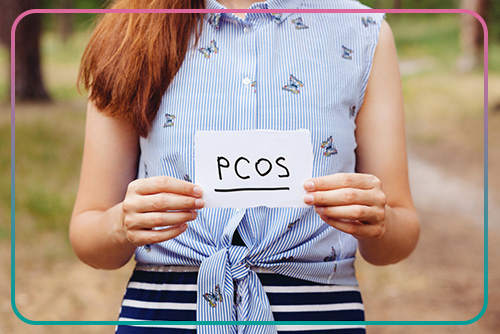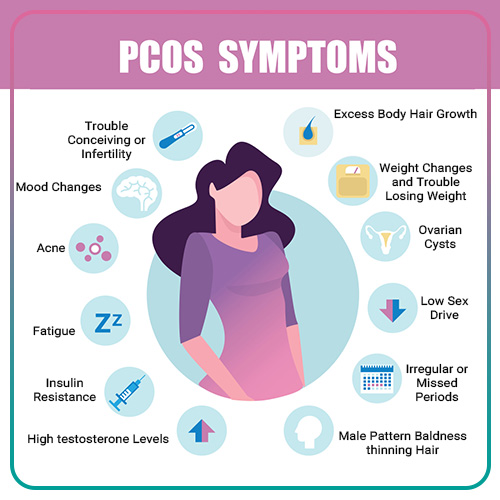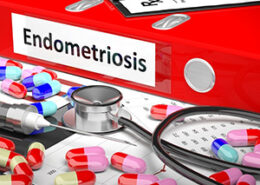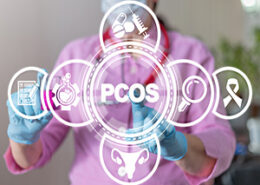PCOS and infertility
What is PCOS?
Ovarian laziness or polycystic ovary syndrome (PCOS) is one of the most common reproductive disorders. In women with polycystic ovary syndrome, male hormones are lower than normal and female hormones are less secreted. High levels of male hormones disrupt the ovulation cycle and can cause fertility problems. This article discusses polycystic ovary syndrome, PCOS risks, PCOS and infertility, and its treatment methods.
Polycystic ovary syndrome affects 5 to 10% of women in childbearing age and may cause infertility problems in women.
Common symptoms of polycystic ovary syndrome in women include:
- Irregularity in the menstrual cycle or menstrual cessation
- Increased growth of excess facial and body hair
- Hair loss
- Overweight
- Purulent pimples (acne)
- Problems getting pregnant
How is PCOS diagnosed?
The diagnosis of PCOS syndrome is made by a physician based on a combination of clinical, laboratory, and ultrasound examinations. The specialist will first ask you questions about your menstrual cycle, weight change, and hair growth. Women who have PCOS usually complain of irregular periods or lack of menstruation or long periods between the menstrual cycles. In addition, symptoms such as overweight, hirsutism, and acne may be present.
Then, the specialist will evaluate the cholesterol, sugar, and male hormone levels by examining the results of a blood test. Learn more about fertility tests for women: fertility blood tests for females
Ultrasound examination also examines the condition of the ovaries. In women with polycystic ovary syndrome, the ovaries are large and contain a large number of small cysts.
What are the risks for women with PCOS?
One of the most important symptoms of PCOS in women is an irregular ovulation cycle. Irregularity or cessation of ovulation impaired hormone secretion. Therefore one of the most important risks of PCOS can be named PCOS and infertility
Therefore, estrogen levels are elevated in women with PCOS. High levels of estrogen thicken the lining of the uterus and cause abnormal bleeding. In addition, the thickening of the uterine wall increases the risk of uterine cancer (endometrial cancer). Also, irregular ovulation in women with PCOS can make it difficult to get pregnant.
Therefore, for pregnancy, a doctor’s intervention and medication are needed. Metabolic syndrome is another common risk factor for women with PCOS. Metabolic syndrome impairs the body’s metabolism. This syndrome can cause weight gain in the middle of the body, high cholesterol, high blood pressure, and insulin resistance/diabetes. Each of these symptoms increases the risk of heart disease.
How does lifestyle modification affect PCOS treatment?
Treatment for polycystic ovary syndrome usually begins with a series of lifestyle changes. Various studies show that there is a direct relationship between polycystic ovary syndrome and obesity. Therefore, women with PCOS are advised to lose weight first and maintain their fitness with regular exercise and a proper diet. 5 to 10 percent weight loss clearly reduces the symptoms of polycystic ovary syndrome. Weight loss and lifestyle modifications can also help control blood pressure and cholesterol and improve insulin resistance in women with PCOS.
Doctors advise women with PCOS to eat more protein, green fruits, and vegetables, and to avoid carbohydrates as much as possible. This diet can help lower insulin levels and control the side effects of polycystic ovary syndrome.
In addition to a healthy diet and regular exercise, women with PCOS should avoid caffeine overdose and stop smoking and drinking alcohol. Because smoking and alcohol increase the levels of male hormones and aggravate the symptoms of polycystic ovary syndrome. Learn more about the effects of smoking on fertility and reproductive health: How smoking affects female and male fertility
What kind of food should people with polycystic ovary syndrome eat?
Increased blood sugar levels and insulin resistance are common complications of polycystic ovary syndrome. Therefore, consuming foods with low glucose (sugar) content helps to create a feeling of fullness for a longer time and keeps blood sugar levels stable.
The important thing to know in this regard is that every food with high fiber does not necessarily have low glucose. For example, whole grain bread, which is high in fiber, is also high in glucose. Another important point is that the glucose of some foods changes according to their cooking method. For example, the glucose level of boiled potatoes is average, but the glucose level of grilled or oven-baked potatoes is high.
In the following, we will introduce some foods with low glucose levels.
- All legumes, including lentils, soybeans, kidney beans, peas, chickpeas, and baked beans
- Whole grains including wheat and whole grain oats, whole-wheat pasta,
- Fruits such as apples, apricots, peaches, cherries, plums, oranges, pears
- Vegetables such as peppers, onions, mushrooms, spinach, broccoli, cauliflower, leeks, green beans, tomatoes
- Nuts including almonds and walnuts
- Dairy products such as milk and yogurt
But it should be remembered that for a healthy diet, in addition to paying attention to the amount of glucose in food, other points such as the amount and type of protein intake, the amount and type of fat intake, etc. should also be considered.
How is infertility treated in women with PCOS?
One way to treat infertility in women with PCOS is by using drugs to stimulate ovulation. In some patients with PCOS, medications that increase the receptors’ sensitivity to insulin can help the body make better use of insulin and improve ovulation. Besides, the use of these drugs reduces the risk of diabetes or metabolic syndrome. Of course, keep in mind that these medications should be taken with the advice and prescription of a specialist.
PCOS and infertility treatment by IVF
In cases of PCOS patients where the medication prescribed by the doctor is not effective, artificial insemination (IVF or ICSI) can help women to get pregnant.
Learn more about IVF treatment in Iran: IVF in Iran
How is PCOS treated in women who have not decided to become pregnant?
If the goal is not pregnancy, taking hormonal medications usually corrects the symptoms of PCOS. Oral contraceptive pills are often prescribed to reduce excess hair growth and acne. Also, Oral contraceptive pills can regulate menstrual periods and prevent pregnancy and some cancers.
On the other hand, weight loss can lower testosterone levels in many women with PCOS and reduce their risk of developing diabetes. Drugs that reduce male hormones can be used to treat hirsutism and acne in patients with PCOS. Excess hair can also be removed with electrolysis and laser treatment.
Treatment of polycystic ovary syndrome, like other diseases, should be based on the specific needs, symptoms, and conditions of each patient. Therefore, you should consult a specialist to find the best treatment.
PCOS treatment in Iran
Polycystic ovary syndrome is not usually definitively treated, but with proper treatment, the symptoms and complications can be greatly reduced and fertility problems in women with PCOS can be treated.
Specialized PCOS treatment clinics in Iran provide specialized PCOS treatment services to patients by utilizing the best nutritionists and experienced physicians. These clinics try to control the symptoms of polycystic ovary syndrome by providing appropriate diets for each person and medication. In addition, couples who have fertility problems due to PCOS are treated in the best infertility treatment centers in Iran and can hug their beloved child.
To get a free consultation with a doctor can keep in touch with us.













